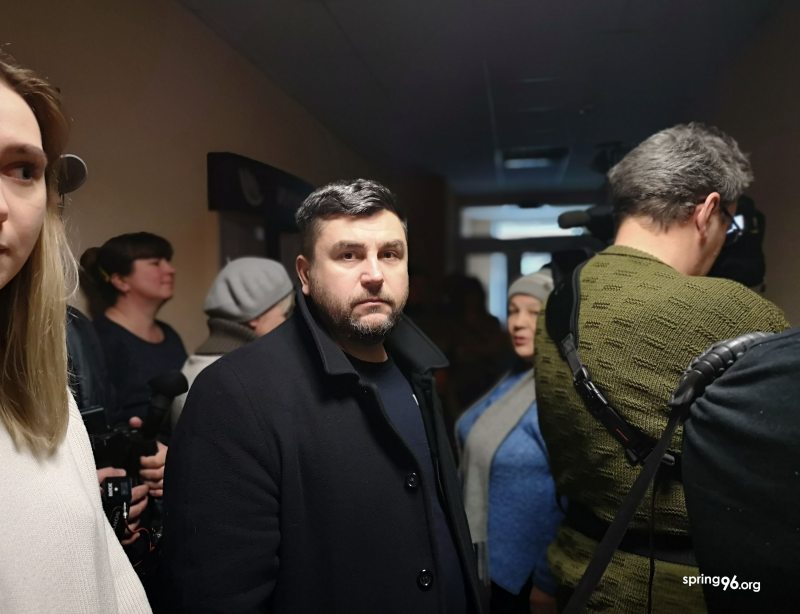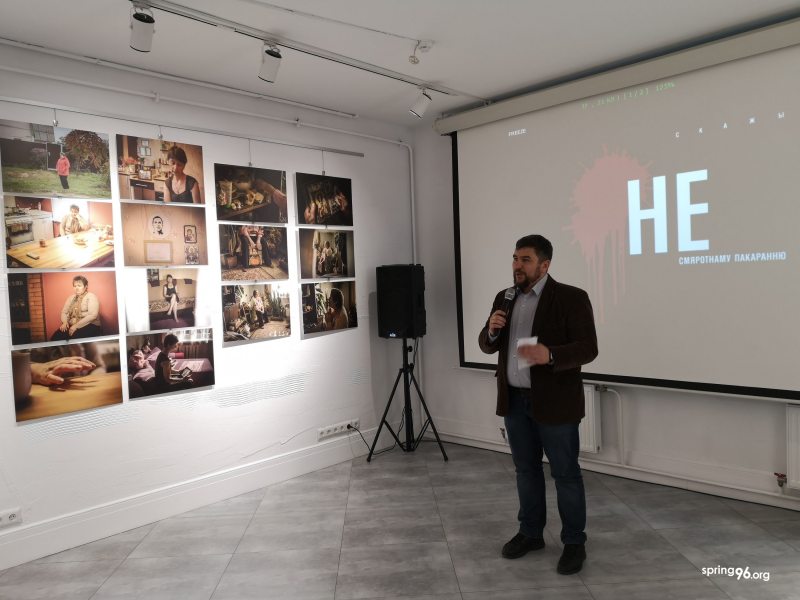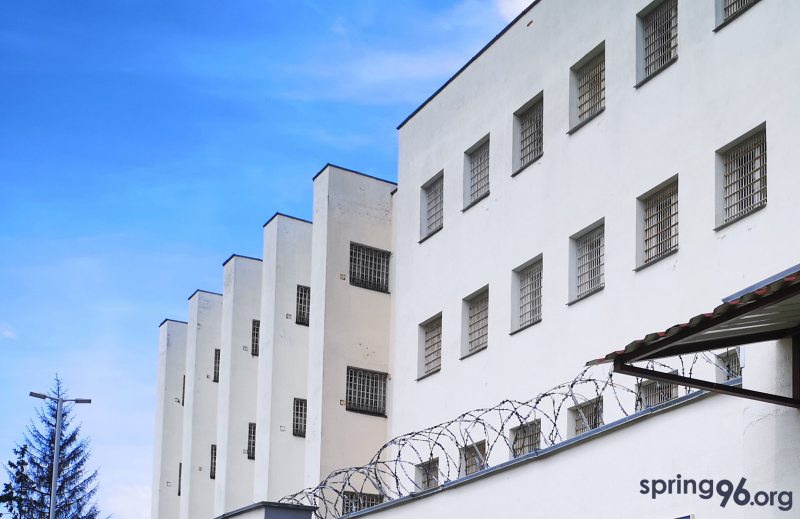Viasna’s Andrei Paluda leaves Belarus, describes detention conditions as inhuman
-

- Andrei Paluda, human rights defender of the Human Rights Center "Viasna" and coordinator of the campaign “Human Rights Defenders against the Death Penalty in Belarus”
Andrei Paluda, human rights defender of the Human Rights Center "Viasna" and coordinator of the campaign “Human Rights Defenders against the Death Penalty in Belarus”, has left Belarus after detention and imminent criminal charges.
On July 14, during a violent attack on numerous NGOs, Andrei Paluda underwent two searches (at home and at the Territory of Rights event space), an interrogation by the Investigative Committee and detention. The human rights activist spent 72 hours in the Akrestsin Detention Center in Minsk and was eventually released as a suspect in a criminal case against Viasna. Paluda, however, remained under travel restrictions.
Shortly after his release, Paluda was summoned to the police to be questioned and charged with an administrative offense, after he refused to give a sample of his handwriting during the July 14 interrogation.
Andrei Paluda said another reason for his departure was the liquidation of the Territory of Rights event space (of which he was the director) and the authorities’ attention towards him in this context. The formal reason for the liquidation was a failure to carry out commercial activity.
“The Territory of Rights had the status of an educational institution. What mandatory commercial activity are they talking about? The pressure intensified and it became absolutely clear that they would let me be,” Andrei Paluda commented on his position.

- Andrei Paluda speaking at the opening of an exhibition on the death penalty hosted by the Territory of Rights event space
After the searches and detentions on July 14, three representatives of Viasna were not released: chairman Ales Bialiatski, his deputy Valiantsin Stefanovich, and lawyer Uladzimir Labkovich. All of them have the status of suspects in a criminal case instituted against Viasna and are being held in pre-trial detention center No. 1 in Minsk. They were recognized as political prisoners by the human rights community.
Andrei Paluda describes the conditions of his detention as inhuman. There were no mattresses, no linen (and the prisoners had to lie on wooden and iron beds), and no drinking water. The toilet smelled bad.
“It was incredibly hot in there and we had to undress up to the underwear,” recalls Andrei Paluda. “And when you start doing something, you just sweat. People are drowsy all the time. But you can’t sleep because the light is on all the time, there is no oxygen, and the food hatch is constantly closed [the food hatch is a small window in the cell door through which food is served to the prisoners. It is also an additional loophole for fresh air]. At the same time, we saw that there were many empty cells in which there were mattresses.”
The activist adds that they were not taken out of the cell for walks, or to the shower. No parcels from the families were allowed, either.
“Of course, such conditions of detention were a challenge, I spent 72 hours in this cell, except for about an hour of meeting with a lawyer, but the other cellmates were there for ten days,” Paluda says.
Conditions of detention for political and non-political prisoners vary a lot. Earlier this was confirmed by Viasna volunteer Yauheniya Babayeva, who also spent three days in the detention center.
Apart from Belsat journalist Ihar Iliyash, Paluda shared the cell with Nasha Niva editor-in-chief Yahor Martsinovich. According to Paluda, Martsinovich was badly beaten during his arrest on July 8.
“They put a boxing helmet on his head and punched him on the head. He was also beaten during the search. Even if he wanted to go from one room to another, he was beaten. He takes a step, and a blow follows. He started to faint, but they did not want to let the ambulance to the investigator’s office [who interrogated him after the search],” Andrei Paluda says on the case of Yahor Martsinovich.
“Where we were, the conditions were inhuman. But they are also an indicator: through them, like through a magnifying glass, everything is visible. That is, in these inhuman conditions, human qualities are revealed at a greater extent. The current system (Akrestsin Street detention center) is aimed entirely at degrading human dignity, and we should remember that human dignity is a fundamental thing that underlies the concept of human rights,” sums up Andrei Paluda.




